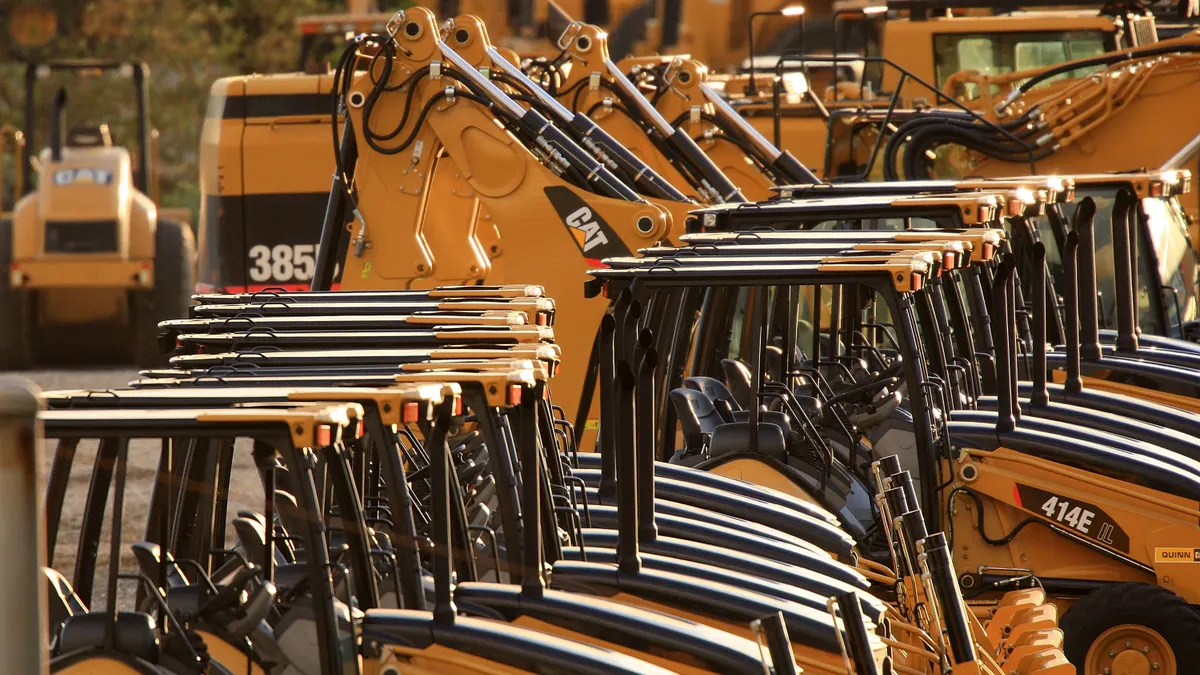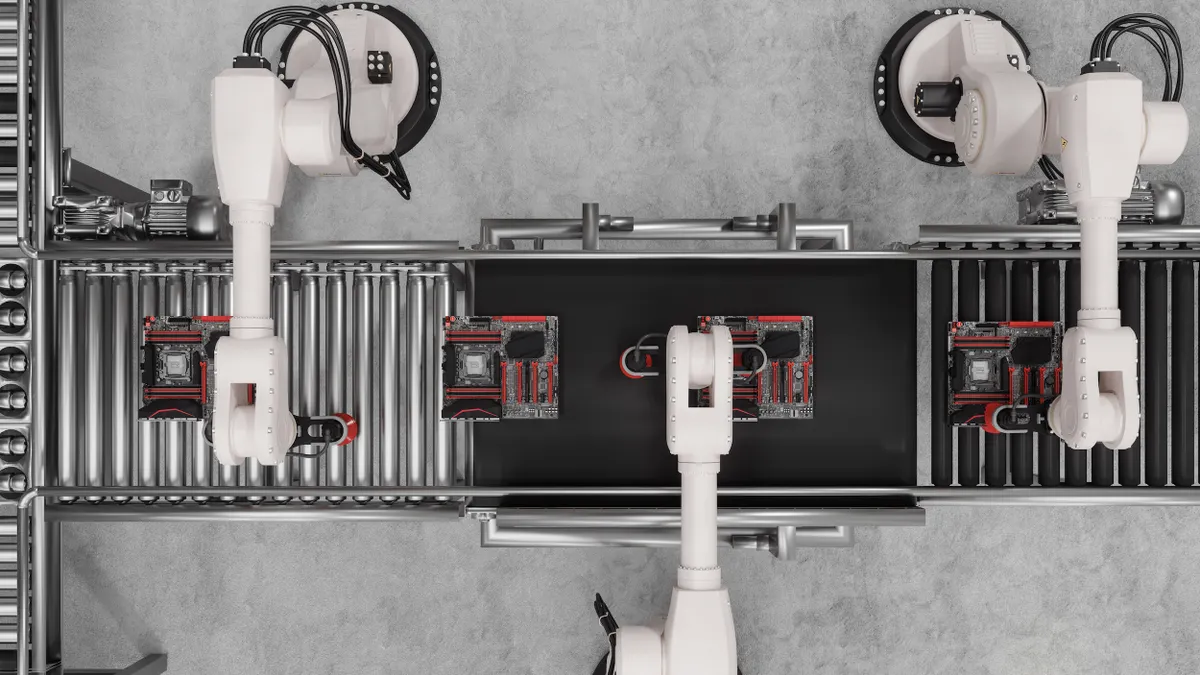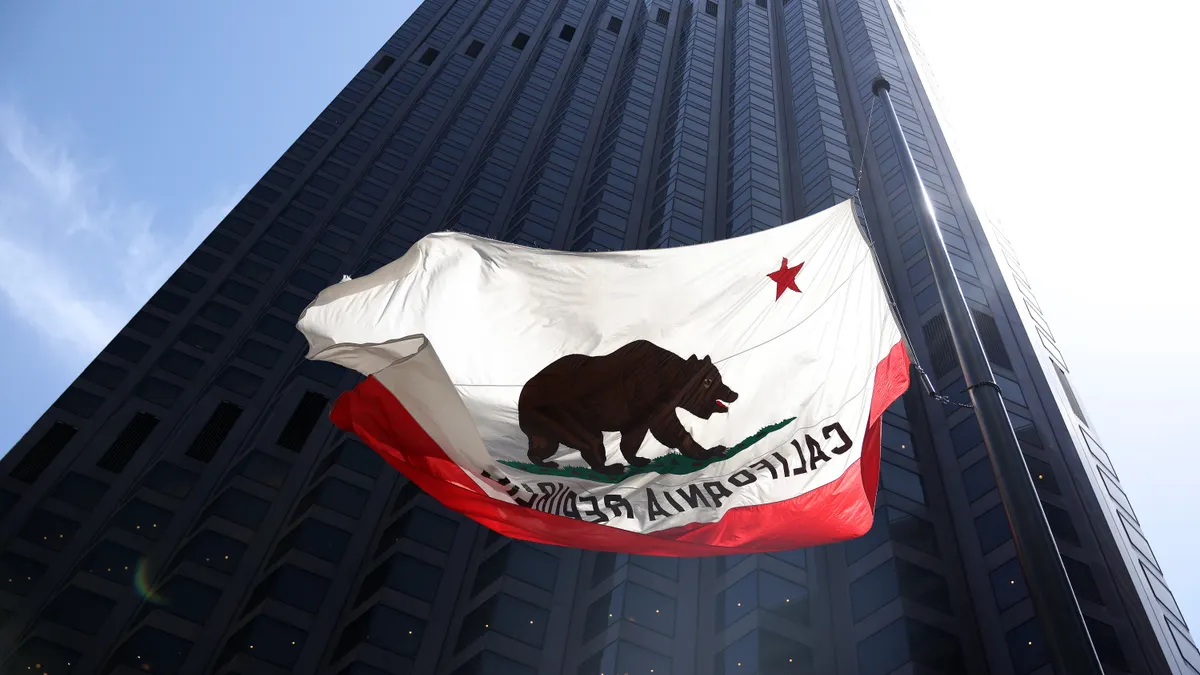Dive Brief:
- Construction equipment maker Caterpillar is expecting a tariff impact of $250 million to $350 million on second quarter sales, newly appointed-CEO Jim Creed said in an earnings call Wednesday.
- While cost cuts have already taken place to weaken the effects of the tariffs, Creed said Caterpillar is evaluating a variety of long-term mitigation actions that require more time to implement and are more difficult to reverse.
- “The situation remains fluid, and we will continue to monitor it closely,” Creed said on the call. He also noted positive earnings momentum in Caterpillar’s major construction, mining and energy and transportation segments, despite a sales decline in Q1.
Dive Insight:
The Trump administration’s tariffs are raising costs and hurting competitiveness for manufacturers as countries retaliate with their own taxes on U.S. goods.
Companies like 3M and Johnson & Johnson, for example, are expecting tariff impacts of $850 million and $400 million for the year, respectively, due to China levies and higher costs on products not exempt under the United States-Canada-Mexico agreement.
While Caterpillar has its largest manufacturing base in the U.S., the Irving, Texas-based company operates production facilities around the world, including Central- and South America, Europe and Asia.
“Throughout our history, we've demonstrated the ability to navigate many different environments. I'm confident we're well positioned to manage the impact of tariffs over time,” Creed said on the call.
Creed, Caterpillar’s former COO, succeeded Jim Umpleby as CEO effective May 1. Umpleby, who led the company for eight years, said he will remain with Caterpillar as executive chairman of the board.
In an effort to mitigate tariff effects, Caterpillar has started cutting back on travel and discretionary spending, as well as slowed some inbound shipments of certain products, Creed said. The company is also weighing long-term changes such as relocating sourcing or supply chains.
“We would obviously look throughout the year at potentially deeper cost reductions, depending on how this plays out,” Creed said. “My preference is to protect our investments in our funding for items that we think are going to really help our future growth.”
Given the dynamic trade backdrop, Creed said he was cautiously optimistic about Caterpillar’s performance for the rest of the year. Caterpillar reported first quarter sales and revenues of $14.2 billion, a 10% decline over last year, driven by dealer inventory changes and unfavorable pricing.
Despite the slowdown, Creed said sales momentum was positive and results were broadly in line with expectations.
Caterpillar posted an operating profit margin of 18.1% for the first quarter compared to 22.3% in the same period last year. The company also reported a backlog of orders totaling $35 billion, its highest to date, and an operating cash flow of $1.3 billion.
Looking ahead, Caterpillar is considering a number of earnings scenarios for the year with tariffs in flux. Creed said he expects sales and revenues to be down slightly over 2024 if the economy shows negative growth later this year. Excluding tariffs, he said earnings would theoretically be flat over last year. The company provided no marginal guidance, citing tariff rate uncertainty.
“Caterpillar's business is resilient due to the diversity of our portfolio and the end markets we serve,” Creed said on the call.













